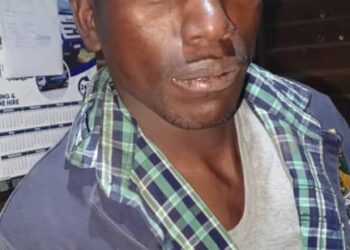The trial of Moses Mpofu and Mike Chimombe, who are facing serious fr@ud charges, has officially been rescheduled to October 22.
The two ja!led business partners sought this postponement in court on Thursday, explaining that they need additional time to organize their legal strategy before submitting an application to refer their case to the Constitutional Court.
During the hearing, both Mpofu and Chimombe communicated to the presiding judge, Justice Pisirayi Kwenda, that they feel significant constitutional issues have arisen in their case.
They are seeking to present a joint application arguing that these issues necessitate the involvement of the apex court before their prosecution can proceed.
The court noted that the representative for the State, Witness Mabhaudhi, did not object to the postponement request, which allowed the judge to grant it.
“The accused will submit their application for referral to the Constitutional Court by Tuesday, October 8. The State will file its notice of opposition on Monday, October 14.
Both parties will reconvene in this court on the 22nd for arguments regarding this case,” Justice Kwenda stated as he approved the application.
Mpofu and Chimombe are embroiled in serious allegations, accused of defrauding the government of a staggering US$7 million in a dubious goats tender deal.
ALSO READ: Tr@gic accident claims life of South African based Zimbabwean truck driver
Since their arrest in June of this year, they have been in jail, fighting the charges against them.
The two men claim that their ongoing legal troubles are the result of powerful external forces with personal agendas oppressing them.
They argue that the roots of their predicament can be traced back to leaked audio recordings featuring Wicknell Chivayo, a controversial figure known for his connection to government tenders.
In these recordings, Chivayo allegedly boasts about bribing senior officials to secure contracts worth over US$100 million related to election processes.
As the trial date approaches, tensions and speculations rise, especially within the community that closely follows this high-profile case.
Many are eager to see how it unfolds, particularly given the complex legal issues being raised and the significant implications for accountability in government dealings. The developments in this case serve as a reminder of the intricate relationships that exist between business, politics, and the law in Zimbabwe.









